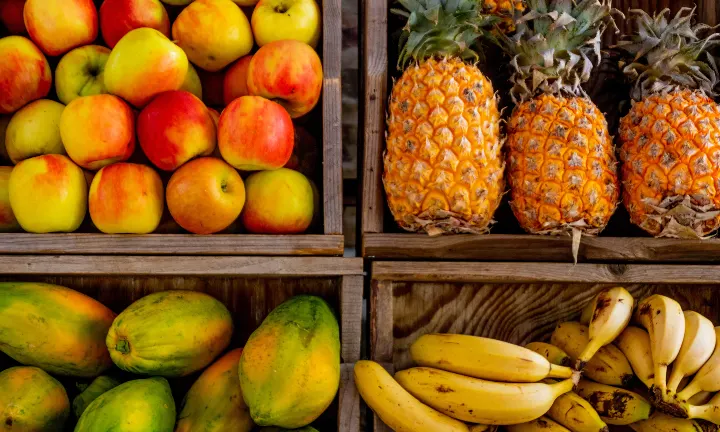Papaya During Pregnancy – Is it safe to eat?
When you’re pregnant, all that you eat and don’t eat plays a pivotal role in the formation of your precious one. Fruits are an important element of a balanced diet and provide numerous benefits as they are a powerhouse of essential nutrients. Your diet and nutrition is of utmost importance, and you’ll find yourself on the receiving end of a truckload of advice from friends, family, and relatives, most of which is fairly unsolicited. And one of the most frequently-doled out tip or rather warning is to avoid papayas during pregnancy, in any shape or form.
While we acknowledge the advice comes from well-meaning people who have good intentions, the truth is papayas can be safely eaten during pregnancy. The misconception arises from a lack of understanding and unawareness. Ripe papayas come with a host of nutrients that are extremely beneficial for pregnant women. The culprit is raw or unripe papayas, which are known to cause complications for expectant mothers.
To give you an all-round view of the issue at hand, so that you can make a decision after having all the pros and cons jotted down for, here’s a summary of the benefits of ripe papayas and effects of unripe papayas.
Benefits of ripe papayas
Fully ripe papayas with yellow skin have multiple benefits and are often considered safe during pregnancy, when consumed in moderation.
- Ripe papayas are great for boosting immunity owing to their high amounts of Vitamin A, B, C, potassium, and beta-carotene, which have high levels of antioxidants. A strong immunity means the ability to fight infections, which is important for pregnant women.
- If you are among those women who’ve had bouts of morning sickness, papayas are known to reduce it.
- Folic acid, a vital nutrient for expectant mothers, is present in papayas. Folic acid is essential for the development of the baby’s brain and spinal cord.
- Most women experience constipation during pregnancy and the fibre content in papayas can help ease digestion.
- Eating ripe papayas in pregnancy, in the right proportion, is known to enhance milk production as well.
Why you should avoid unripe papayas?
- Unripe papayas can cause uterine contractions and premature labour as the latex in papayas contain papain, a substance that stimulates certain hormones that induce contractions. Consuming papayas in early stages of pregnancy can also cause miscarriages as it stimulates and increases menstrual flow.
- Papain is known to disrupt cell growth and obstruct the development of tissues in the growing foetus. It can also potentially harm the embryo.
- Unripe papayas are very harmful to the placenta. Papain is known to cause internal bleeding, and bleeding on the edges of placenta can further complicate the pregnancy and cause delivery-related problems, and hence one should refrain from eating papayas in the third trimester of pregnancy.
- Papayas increase bowel movement due to its high fibre content and this could create pressure around the uterus and pelvic region, leading to a possible miscarriage.
- Women who’ve had a history of miscarriages or premature labour need to be extremely cautious as they are more prone to having pregnancy complications due to the papain in unripe papayas.
Is papaya juice safe to consume during pregnancy?
One of the benefits of ripe papayas, when eaten in moderation, is its fibre content that aids digestions and helps ease constipation. Drinking papaya juice eliminates the fibre content altogether, and you won’t be able to benefit from it. Another drawback is that papaya juice is made from papaya concentrate, which will have an unusually higher content of latex and papain. In such cases, it is better to opt for home-made juice or better, eating them fresh and ripe.
Can papayas be eaten post-delivery?
Ripe papayas can be eaten post-delivery as it has an impressive amount of vitamins and minerals. Papayas are also known to boost milk production, thus benefitting nursing mothers. Moreover the hormonal effects of papayas can be seen as a natural contraceptive, albeit not as strong as other methods.
Since papayas need to be consumed with extreme and utmost caution and pose adverse effects, most pregnant women find it feasible to avoid papayas altogether and look at other fruits that provide the same nutrients. Ripe papayas can, however, be eaten in proportion if there is no previous case of pregnancy complications.

